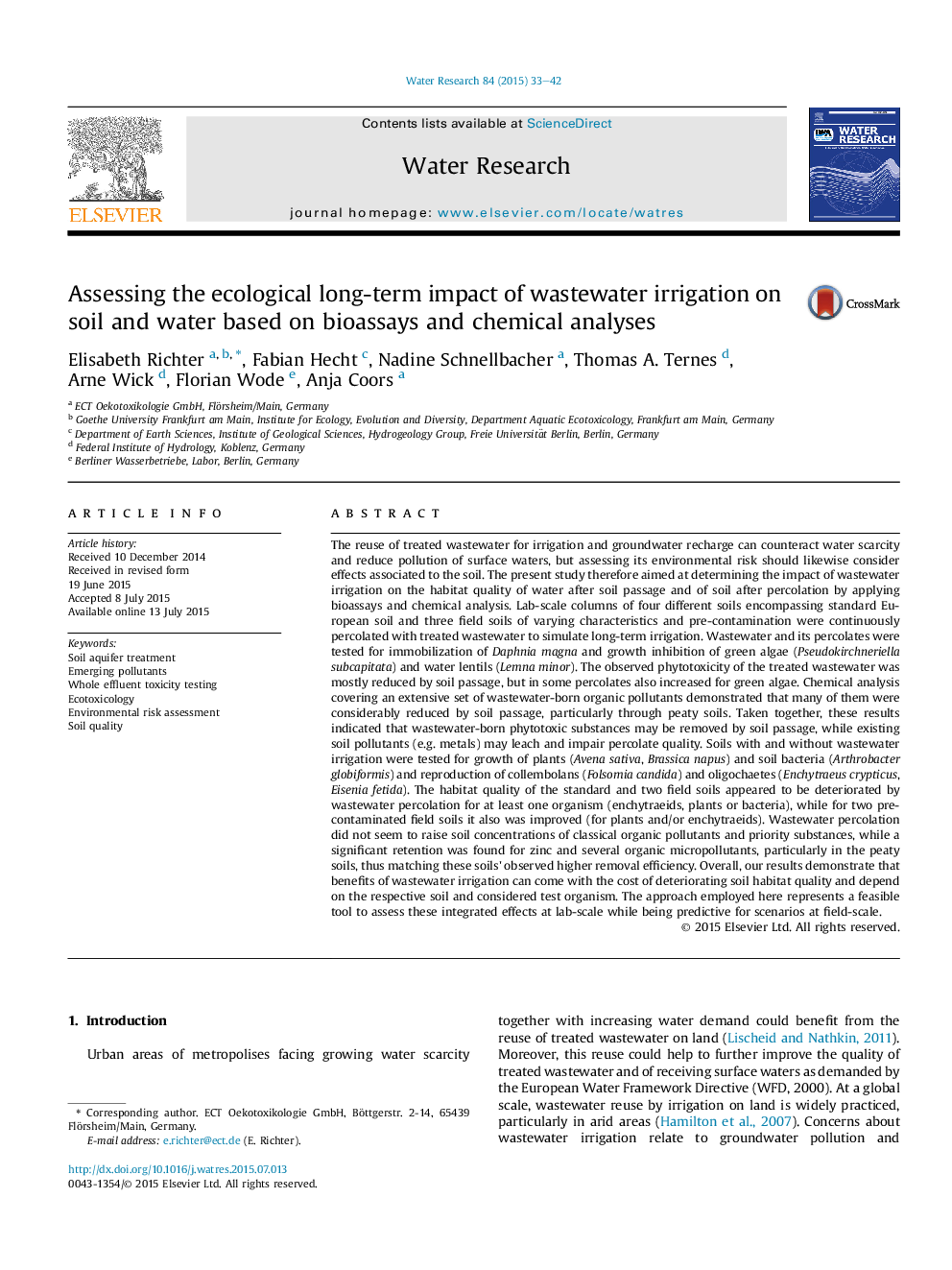| کد مقاله | کد نشریه | سال انتشار | مقاله انگلیسی | نسخه تمام متن |
|---|---|---|---|---|
| 4481070 | 1623084 | 2015 | 10 صفحه PDF | دانلود رایگان |
• Integrative assessment using chemical and biological analyses for soil and water.
• Wastewater quality can be improved or deteriorated by soil passage depending on soil.
• Improving wastewater quality may imply deteriorating soil quality.
The reuse of treated wastewater for irrigation and groundwater recharge can counteract water scarcity and reduce pollution of surface waters, but assessing its environmental risk should likewise consider effects associated to the soil. The present study therefore aimed at determining the impact of wastewater irrigation on the habitat quality of water after soil passage and of soil after percolation by applying bioassays and chemical analysis. Lab-scale columns of four different soils encompassing standard European soil and three field soils of varying characteristics and pre-contamination were continuously percolated with treated wastewater to simulate long-term irrigation. Wastewater and its percolates were tested for immobilization of Daphnia magna and growth inhibition of green algae (Pseudokirchneriella subcapitata) and water lentils (Lemna minor). The observed phytotoxicity of the treated wastewater was mostly reduced by soil passage, but in some percolates also increased for green algae. Chemical analysis covering an extensive set of wastewater-born organic pollutants demonstrated that many of them were considerably reduced by soil passage, particularly through peaty soils. Taken together, these results indicated that wastewater-born phytotoxic substances may be removed by soil passage, while existing soil pollutants (e.g. metals) may leach and impair percolate quality. Soils with and without wastewater irrigation were tested for growth of plants (Avena sativa, Brassica napus) and soil bacteria (Arthrobacter globiformis) and reproduction of collembolans (Folsomia candida) and oligochaetes (Enchytraeus crypticus, Eisenia fetida). The habitat quality of the standard and two field soils appeared to be deteriorated by wastewater percolation for at least one organism (enchytraeids, plants or bacteria), while for two pre-contaminated field soils it also was improved (for plants and/or enchytraeids). Wastewater percolation did not seem to raise soil concentrations of classical organic pollutants and priority substances, while a significant retention was found for zinc and several organic micropollutants, particularly in the peaty soils, thus matching these soils' observed higher removal efficiency. Overall, our results demonstrate that benefits of wastewater irrigation can come with the cost of deteriorating soil habitat quality and depend on the respective soil and considered test organism. The approach employed here represents a feasible tool to assess these integrated effects at lab-scale while being predictive for scenarios at field-scale.
Figure optionsDownload high-quality image (158 K)Download as PowerPoint slide
Journal: Water Research - Volume 84, 1 November 2015, Pages 33–42
